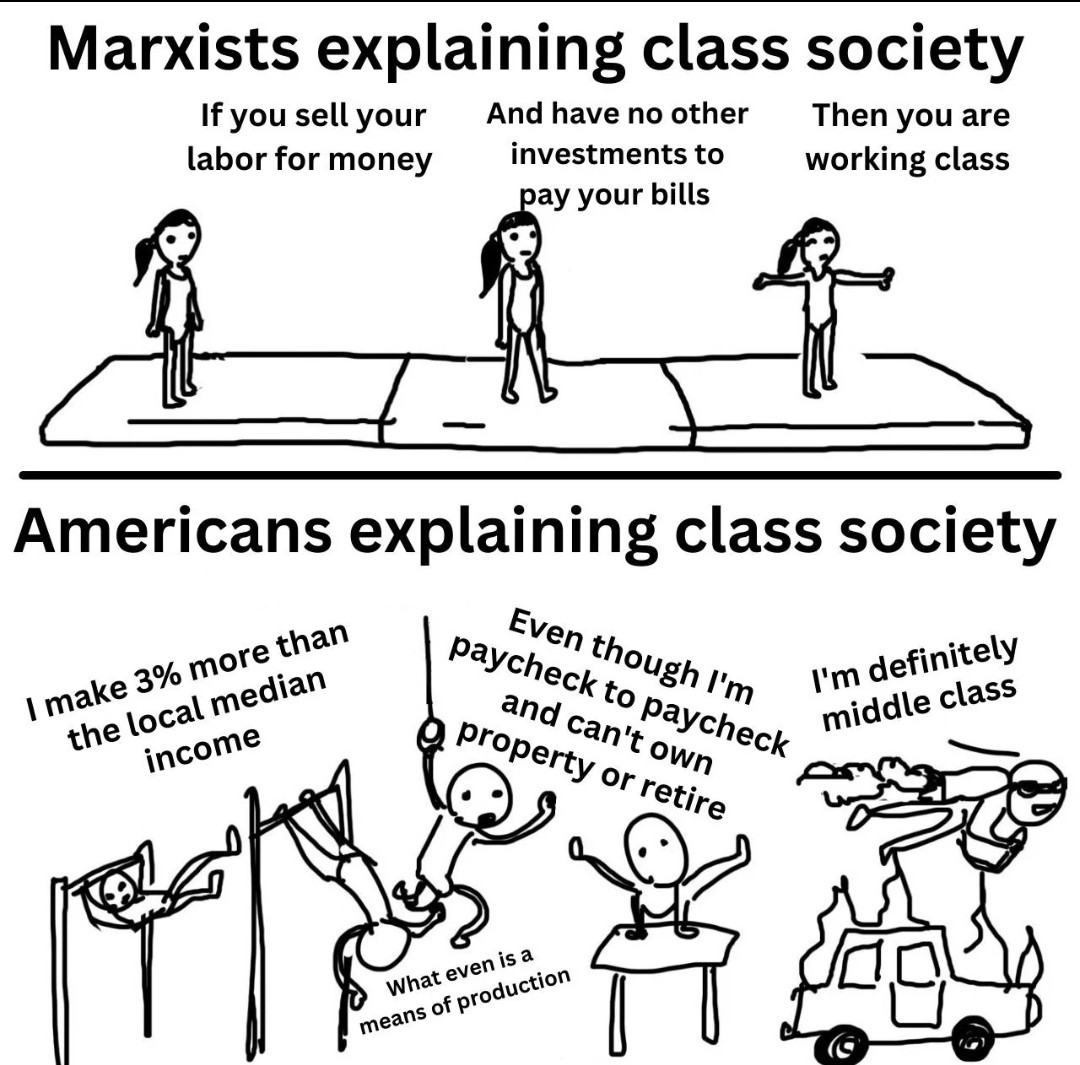this post was submitted on 24 Sep 2023
150 points (92.6% liked)
Memes
4352 readers
54 users here now
Good memes, bad memes, unite towards a united front.
founded 5 years ago
MODERATORS
you are viewing a single comment's thread
view the rest of the comments
view the rest of the comments

People get too fixated on the class definitions and delineations. They're a reduction that's useful for explaining to baby leftists, but developing a more comprehensive understanding of class analysis is essential.
What are a person's material interests? Do those material interests influence them to be revolutionary or reactionary? Understanding a person's material interests, we can determine how to engage with them and how much effort to expend on them.
Attempting to define strict arbitrary lines between classes misses the point. The real world is complex: there's financial bourgeoisie, industrial bourgeoisie, international and national bourgeoisie, precarious petty bourgeoisie; there's comfortable labor aristocrats, there's educated people in managerial positions and academia, there's people working trades, there's people working in the service industry, there's enslaved workers. Of these many may have investments or retirements or social demographic experiences that further influence their material interests. There's people who own apartment complexes, people who own their home outright, people who have a mortgage, people who are entirely subjected to rent. A working renter/homeowner who sublets a room has a distinct material interest both from their tenant as well as large landlords.
The point is, these are all unique experiences. We don't group them arbitrarily, we do so in an attempt to unify people (in the real world with action, not just in concept) along common interests. The way certain subclasses move is not deterministic, all sorts of cultural and political and environmental and military and economic variables can push them one way or another.
Furthermore, the creation of class traitors, people working against their primary material interests, is incredibly important. No revolution has happened without class traitors, or people acting on moral grounds rather than materially self-interested ones.
While there's obviously a lot of nuance past the basic class definition. I do think that it's an incredibly useful starting point for any analysis. Looking at whether a person's primary source of income comes from their labour or from capital they own helps understand where their interests lie. I completely agree that one should not use reductive analysis here, but it's a good starting point, and it's the basis for class contradictions within the capitalist society.
Absolutely, it's class analysis 101. Not wrong per se, just not the whole picture. But a good starting point.